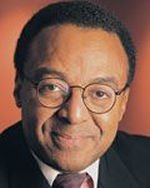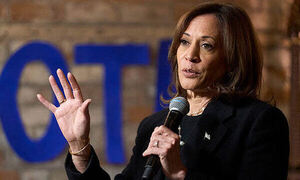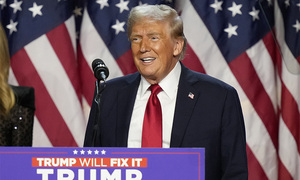 |
| 어런스 페이지 美 칼럼니스트 |
그러나 이번 올림픽에 앞서 벌어지는 축제 분위기를 망친 성화봉송에 따른 잡음은 더 깊은 진실을 드러낸다. 즉 올림픽은 어떤 의미에서 정치의 장이 되는 경우가 종종 있다.
미국 정계의 좌파와 우파가 보기 드물게 단합하여, 부시 대통령이 다른 주요 세계 지도자들과 보조를 맞추어 베이징 올림픽 개막 행사에 참가하지 말라고 촉구하는 까닭이 여기에 있다.
그러나 부시 대통령은 올림픽 개막식 불참이 순수한 올림픽에 정치를 불필요하게 개입시키는 처사라며 불참 요구를 거부한다는 의사를 분명히 밝혔다.
이 같은 부시의 입장 표명은, 티베트 등지에서 시행되는 중국의 야만적 인권정책에 반대하는 일부 여론의 압력에 대한 반응이다. 베이징 올림픽 성화가 통과하는 21개 도시 가운데 몇몇 도시에서 벌어진 중국의 인권 탄압에 대한 항의시위는 경찰과의 몸싸움으로 악화되기도 했다.
이러한 항의의 표적으로 중국보다 더 적합한 대상은 없다. 인도주의에 역행하는 중국의 탄압 목록은 길다. 정치범과 언론인 투옥, 종교 탄압이 대표적인 사례다. 세계무대에서 중국은 인권을 탄압하는 다양한 정권들에게 경제원조와 무기원조 및 외교적 지원을 하고 있다. 수단 석유의 최대 수입국인 중국은 다르푸르의 주민 학살을 간접적으로 지원해 왔다.
중국에 많은 채무를 지고 있으며 중국과의 무역에 열을 올리는 미국은 중국의 이런 행위를 간접적으로 방조하는 주요 국가들 가운데 하나라 할 수 있다.
올림픽이 단지 스포츠 행사에 그치지 않는다는 것을 역사가 보여준다. 1964년의 일본과 1980년의 구 소련 및 1988년의 한국은 세계 무대에서 자국의 위상을 높이는 데 올림픽을 이용한 대표적인 나라들이다.
가장 기억에 남는 올림픽 악용 사례는 1936년 나치 독일이 개최한 베를린 올림픽이다. 당시 아돌프 히틀러의 사악한 정권의 이미지를 미화하기 위해 성화봉송이 국제적인 축제로 탄생했다.
워싱턴의 국립 홀로코스트 기념박물관에 최근 개장된 1936년 올림픽 대회 전시관의 큐레이터인 수전 배크러치는 “나치의 성화는, 독일이 곧 점령할 예정이었던 나라들을 통과했다”고 지적했다. 히틀러는 인종차별적이며 유대인을 박해하는 누렘부르크 법 제정과 대대적인 유대인 체포 및 죽음의 수용소 운영 등 나치정권의 극악무도한 치부를 올림픽으로 가리는 데 성공했다.
그러나 장기적으로 볼 때, 베를린 올림픽에서 가장 기억되는 사건은 제시 오언스가 4개의 금메달을 딴 쾌거였다. 미국 육상계의 스타였던 오언스는, 아리안 족이 우수한 종족이란 히틀러 이론의 허구성을 폭로했다.
이상에 비추어볼 때 필자는 미국 대통령의 베이징 올림픽 개막식 불참 요구에는 찬성하지만 선수들의 불참 요구에는 반대한다. 우리는 자국 선수들이 훈련해온 종목에서 경쟁할 기회를 주어야 한다. 그럼으로써 제시 오언스가 그랬던 것처럼 훌륭한 업적 달성의 모범을 세계에 보여줄 수 있을 것이다.
올림픽 경기의 가장 큰 가치는 일반적인 정치적 민족주의를 뛰어넘어 인간관계를 한 차원 더 높이는 능력에 있다는 것을 역사는 보여 준다. 즉 국가와 인종 및 종족을 초월하는 인도주의적이고 평등하며 가치 있는 페어플레이의 이상을 실현한다.
고대 그리스 도시국가들은 올림픽 경기에 참가하기 위해 전쟁을 중단했던 것으로 전해진다. 최근에 들어와 올림픽 경기는 자국 경계선 바깥 세계의 사람들과 자신이 많은 공통점을 갖고 있다는 사실과 그러한 공통점이 서로 다른 사람들을 연결하는 다리가 된다는 것을 일깨워 주었다.
우리가 정치인들의 올림픽 개입을 막고 올림픽 경기와 참가선수들을 지지해야 하는 이유가 거기에 있다.
어런스 페이지 美 칼럼니스트
워싱턴 타임스·정리=오성환 외신전문위원
Boycott politicians, not Olympics
By Clarence Page
"The Olympic Games belong to the athletes and not to the politicians," Avery Brundage, a past president of the International Olympic Committee, once said. We like to think so, don't we?
Yet, the raucous rounds of "snatch the torch" that have disrupted this year's pre-Olympics festivities reveal a deeper truth: The Olympics are often politics by other means.
That's why an unusual right-left political coalition has urged President Bush to join some other major world leaders in skipping the Beijing Olympics' opening ceremonies. Democratic presidential contenders Sens. Hillary Clinton of New York and Barack Obama of Illinois called on Bush to avoid the ceremonies. Arizona Sen. John McCain, the presumed Republican nominee for president, joined in last week.
U.S. Rep. Thaddeus McCotter, a conservative Michigan Republican, has introduced a bill to prevent the president and other U.S. government officials and employees from attending the Aug. 8 parade.
But Mr. Bush has tended to shrug off such notions as an unnecessary mix of politics with the purity of the Games. "I'm going to the Olympics. I view the Olympics as a sporting event," Mr. Bush said in February. "You got the Dalai Lama crowd, you've got global warming folks, you've got Darfur. And I just ? I am not going to go and use the Olympics as an opportunity to express my opinions to the Chinese people in a public way."
He was referring to pressure from the same protesters against China's brutal human-rights policies in Tibet and elsewhere. Their protests have led to scuffles with police and unsmiling Chinese security agents in several of the 21 cities through which China's pre-Olympic torch relay is running.
Whether you support torch-snatching as a pre-Olympic event or not, this international embarrassment could hardly be aimed at a more deserving target than China. The country's list of offenses against humanity is long: political prisoners, jailed journalists, religious persecution ? you name it, they do it. On the world scene, they have offered aid, weapons and comfort to a variety of human-rights abusers. As Sudan's leading oil customer, they have given passive support to that country's genocidal policies in Darfur.
And as their eager trading partner and debtor, we, the United States, have been among China's leading enablers.
History shows Olympics to be more than just a "sporting event," as Mr. Bush calls it. Japan in 1964, South Korea in 1988 and the Soviet Union in 1980, among others, have used the Olympics to elevate their stature on the world stage.
The most memorably notorious example is Nazi Germany in 1936. Those were the games that created the torch relay as an international pageant to help polish the image of Adolf Hitler's murderous regime.
Ominously, Susan Bachrach, curator of an exhibit on the 1936 Olympics that opens at the United States Holocaust Memorial Museum in Washington on April 25, observed, "The Nazi torch ran through countries that Germany was about to conquer."
U.S. Olympic Committee President Avery Brundage argued vigorously against calls for the United States to boycott the Berlin Olympics. Hitler successfully concealed the deadliest side of his regime, including the racist and anti-Semitic Nuremburg laws and the rounding up of Jews and others for the first of his death camps.
Yet, in the long run, what is most remembered from that Olympics are the four gold medals won by Jesse Owens, the black American track-and-field star who blew holes in Hitler's theories of Aryan supremacy.
It is with that positive memory in mind that I support the call for our president but not our country's athletes to boycott China's Olympics. We should give our athletes a chance to compete, as they have been training to do, and maybe present the sort of high-achieving model of achievement to the world that Jesse Owens did.
History shows the greatest value of the Olympic games is in their ability to rise above ordinary political nationalism to a higher level of human relations: a humanitarian, egalitarian and meritorious ideal of fair play that transcends boundaries of nations, races or tribes.
It is said that nations in ancient times put down their arms and took a break from war in order to compete in the Olympics. In more recent times, the Olympics encourage us to look beyond our home countries to learn about how much we have in common with the rest of the world ? and how those commonalities can bridge our differences.
That's why we should support the Olympics and our athletes. Let the politicians stay home.
Clarence Page is a nationally syndicated columnist.
murderous:흉악한 meritorious:가치 있는
[ⓒ 세계일보 & Segye.com, 무단전재 및 재배포 금지]
![[설왕설래] 머스크의 파격 구인 공고](http://img.segye.com/content/image/2024/11/18/128/20241118500088.jpg
)
![[특파원 리포트] ‘안전한 사회’ 우기는 중국](http://img.segye.com/content/image/2023/09/25/128/20230925500060.jpg
)
![[이삼식칼럼] 누가 ‘노인’인가](http://img.segye.com/content/image/2024/03/10/128/20240310510496.jpg
)
![[심호섭의전쟁이야기] 냉전 시기 동아시아 열전의 유산과 오늘](http://img.segye.com/content/image/2024/11/03/128/20241103510110.jpg
)








